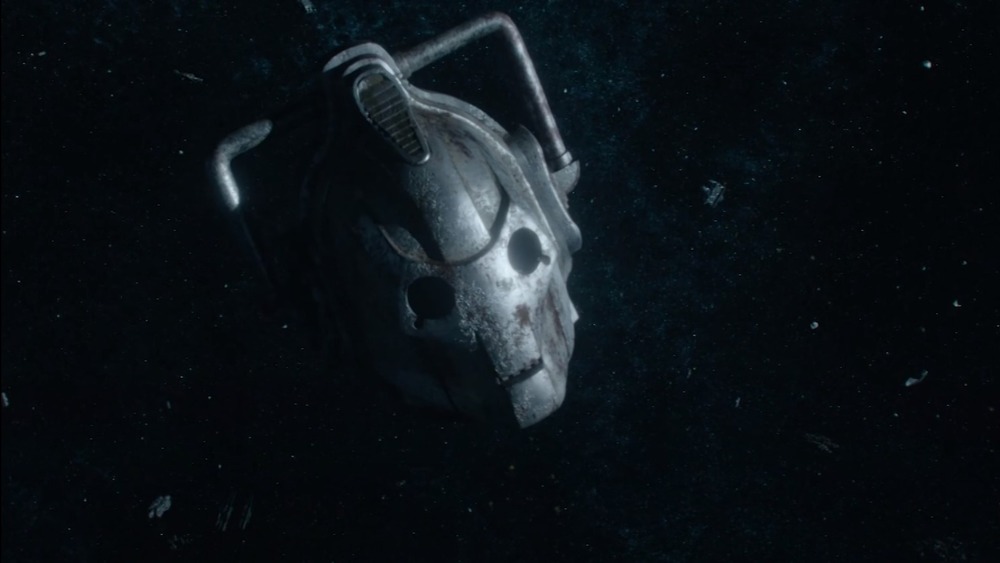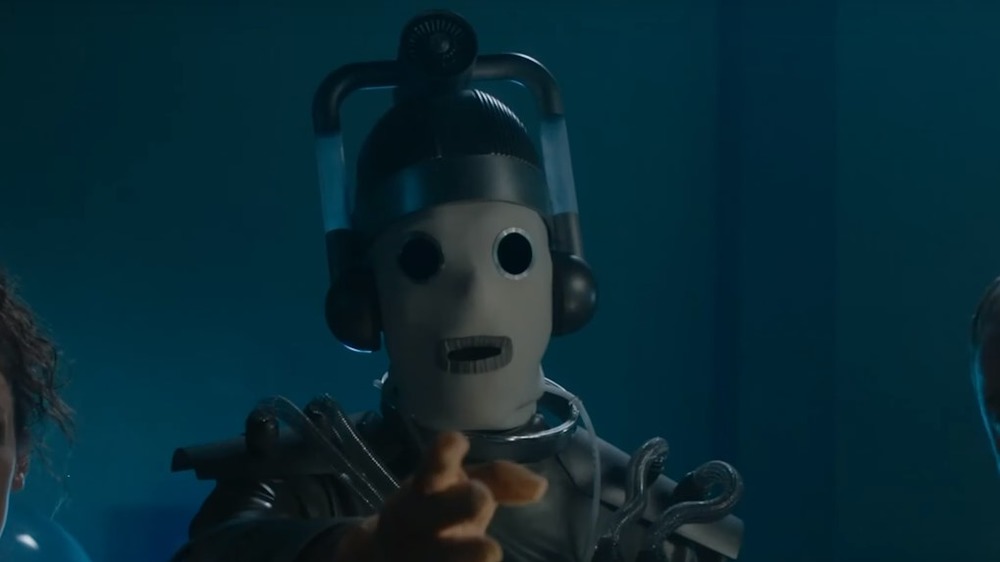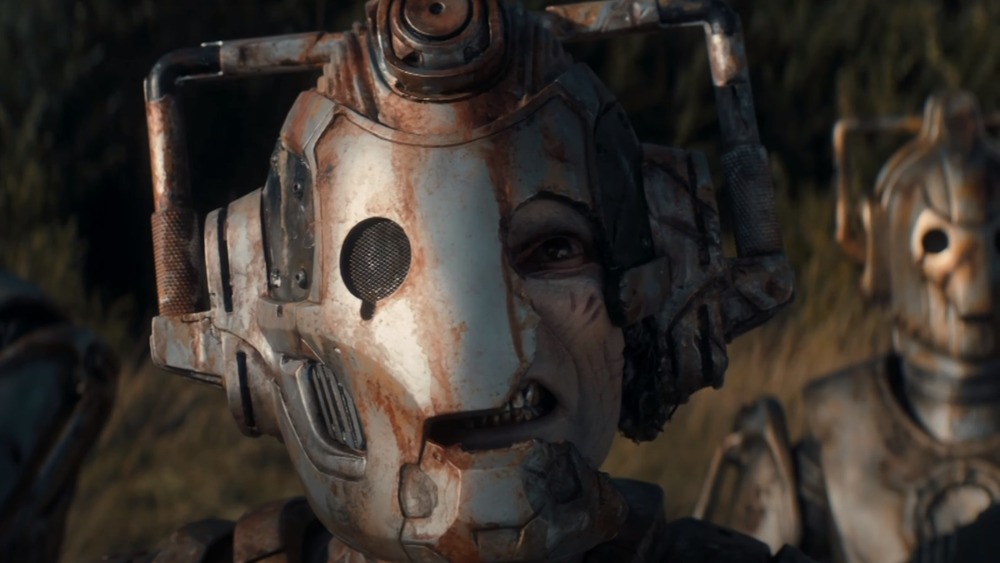The Real Reason Doctor Who's Cybermen Are Terrifying
The Cybermen have a bad reputation in the Doctor Who mythos. The Daleks get all the attention, with kids hiding behind sofas to avoid their monocular stare-downs — despite the fact that the hovering pepper-grinders have killed precisely zero incarnations of the Doctor and the Cybermen have been responsible for two of the protagonist's regenerations so far.
Still, taking second billing to one of the most iconic villains in science-fiction history isn't so bad, and it's not like the Cybermen have been starved for memorable, dastardly deeds. They helped facilitate the separation of the Tenth Doctor (David Tennant) and Rose (Billie Piper), breaking a million nerd hearts in one fell swoop, and turned Danny Pink (Samuel Anderson) into a stretch-faced stoicism torpedo. On their bad days, James Corden's Craig Owens beats them with love. On their good days, they turn abandoned space amusement parks into cybernetic zombie nightmares, inspiring planetary-scale nuclear responses.
So, what is it about the Cybermen that keeps the Doctor Who writers' room coming back decade after decade? The answer is deeper and more genre-spanning than the terrible beasties' clunky plastic armor would have you believe.
From humble beginnings, the Cybermen upgraded
First, there's the speculative fiction angle. In its complete history of the Cybermen, Radio Times states that the lumbering cyborgs came in part from the mind of Doctor Who's scientific advisor Dr. Kit Pedler, a parapsychologist, scientist, and sci-fi author. Dr. Pedler had become fascinated by the blossoming fields of bizarre organ transplantation and limb prosthesis, especially as they related to Theseus' Paradox: How much of something can you replace before it stops being what it originally was? What about when you apply the same question to the human body? The human mind? From there, the grim symposium went full sci-fi. Is the augmentation of physiology morally tenable as a means of survival in the face of extinction? What if said augmentation robs its subjects of the aspects of themselves perceived to be worth saving?
As Doctor Who went on, Cybermen stories continued to ask those questions, decades at a time. With each appearance, they seemed to develop further — becoming more dangerous and advanced and, intrinsically, less human. When they first appeared in the 1966 serial The Tenth Planet, the Mondasian Cybermen had a decidedly different look than their New Who descendants. They were more like medical experiments, draped in fabric and carrying unwieldy life support devices. They gave off the impression that they were never more than a hard reboot away from begging for death. By 2013's Nightmare in Silver, they were nigh-invulnerable, moved faster than the human eye could detect, and could convert nonhuman species.
The Cybermen tap into human guilt
While the Cybermen were conceived as a cautionary tale about what could become, they've developed into an allegory for what, historically speaking, we've already been: cultural bulldozers.
Like the Borg, zombies, and Crossfit enthusiasts, Cybermen are all about mindless, ever-expanding homogeny. They literally take away the things that make their victims individuals, disconnecting their ability to feel emotion. Character and color are discarded in favor of hive-minded efficiency, regardless of the opposing party's feelings on the matter. Just as the Cybermen say, "Upgrading is compulsory."
The more civilizations the Cybermen interact with, the more advanced they become. Their aforementioned appearance in Nightmare in Silver saw an interplanetary empire brought to collective tears at the prospect of one functioning cyborg. An entire corner of the night sky had gone black thanks to the desperate, last-ditch destruction of a galaxy, made in an attempt to slow the Cybermen down. Billions of people are said to have died in the process because, like the old man said, "sometimes, dead is better."
But hey, the Daleks have plungers for arms. That's pretty scary too.


